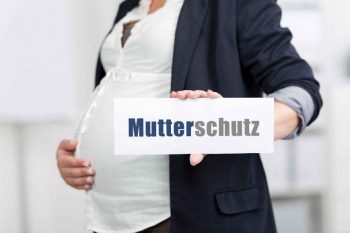 Parental leave in Germany may seem amazing, but it is also complex and can be confusing, especially to a foreigner.
Parental leave in Germany may seem amazing, but it is also complex and can be confusing, especially to a foreigner.
Adjusting to motherhood is made a little easier if you happen to be an employed woman working for a German company. You will actually be provided mandatory time-off from work, before and after childbirth. Basically the Mutterschutzgesetz, Maternity Protection Act of 1968 was instituted to ensure that expecting mothers are not discriminated against when applying for jobs and to provide them with added protection from being dismissed from work as a result of their pregnancy or arrival of their newborn child. This law actually goes well beyond that fundamental claim and provides much more.
In order for the Maternity Protection’s measures to be activated, the expectant mother, who is employed, must inform their employer of their pregnancy and the expected date of delivery. If a verbal notification isn’t good enough, then a doctor’s Certificate of Expected Date of Delivery is to be provided to the employer. Keep your receipt, because employers must reimburse their employees for this certificate when they request it.
Expectant mothers applying for employment are not required to make their pregnancy known before entering into employment.
Employers may not disseminate information about an employee’s pregnancy to a third party.
After an expecting mother has informed her employer of her pregnancy, the employer must forward the information to the Arbeitsschutzämter, Employment Protection Office or the Gewerberaufsichtsaemter, Business Supervisor’s Office. Both of these offices ensure that all Mutterschutz provisions are properly regarded, just as they serve to assist both employer and employee on all issues pertaining to Mutterschutz.
 The German system appears relatively gender-equal, with mothers and fathers granted the same leave entitlements, and rules allowing for both parents to devote large periods to both family and career in turn.
The German system appears relatively gender-equal, with mothers and fathers granted the same leave entitlements, and rules allowing for both parents to devote large periods to both family and career in turn.
But despite this, a recent Forsa poll of 1,000 fathers and stepfathers between 20 and 55 suggested that just 38 percent of dads of children under six chose to take no parental leave at all, and 80 percent of fathers overall only stayed off work for two months after the birth. Both parents come under the same system of “elternzeit” (parental leave) so mothers and fathers can be confident their jobs are protected by the law for as long as they like until their child turns three. This includes step-parents sharing in the child’s care.
Mothers, meanwhile, also have six weeks of compulsory paid leave before the birth and eight weeks afterwards. This is extended to 12 weeks following premature or multiple births.
The parent intending to take time off work must apply seven weeks in advance, and must limit their periods of leave to two during the three years – but each period can be as long as they want.
Additionally, if a parent takes a whole year of parental leave they cannot take any in the following year without their employer’s permission.
Grandparents and other family members can also take parental leave under certain circumstances, for example if the parent is a minor.
 Mothers are entitled to full pay during the six weeks before, and eight weeks after, the birth, known as “mother protection time”.
Mothers are entitled to full pay during the six weeks before, and eight weeks after, the birth, known as “mother protection time”.
Both parents can claim parental benefits – if they are on leave during the first 12 months after the child’s birth, along with two extra “partner months” of benefit if the couple claims jointly rather than separately.
The benefit is calculated at 65 percent of the parent’s previous monthly salary, though it gets boosted slightly if they were earning €1,000 or less. Those with more young children also get a 10-percent (or a minimum of €75 a month) “sibling bonus”.
The total benefits are ring-fenced at a minimum of €300 and maximum €1,800 per month, while parents who were unemployed can also claim at least the minimum €300 a month.
Those receiving parental benefit are still allowed to work part-time up to 30 hours a week. And if their existing job is at a company with more than 15 employees, they are entitled to 15 to 30 hours part time work per week, unless the firm has specific reasons for not offering it.
 In general, unplanned extensions and changes to parental leave must be agreed between the parent and their employer. For example, parents can extend their agreed leave with their boss’ express approval, but there is no legal entitlement.
In general, unplanned extensions and changes to parental leave must be agreed between the parent and their employer. For example, parents can extend their agreed leave with their boss’ express approval, but there is no legal entitlement.
And if the employer agrees, a parent can also “carry over” 12 months of their possible three years to be used at any time before the child’s eighth birthday.
Are there any planned reforms to parental leave?
No major reforms are expected in the near future, although new Families Minister Manuela Schwesig said in a recent interview she wanted to extend the system, subsidizing parents to cut their working hours in a bid to help them balance family and career.







